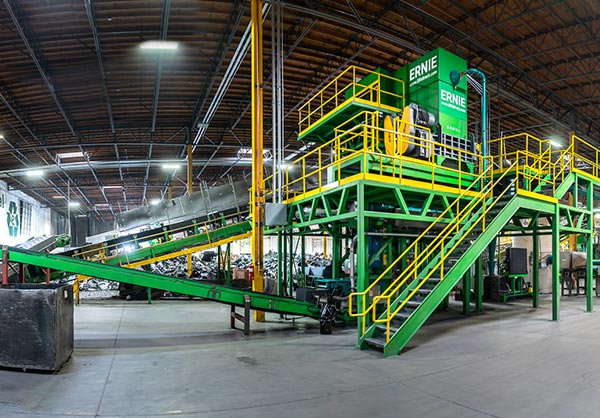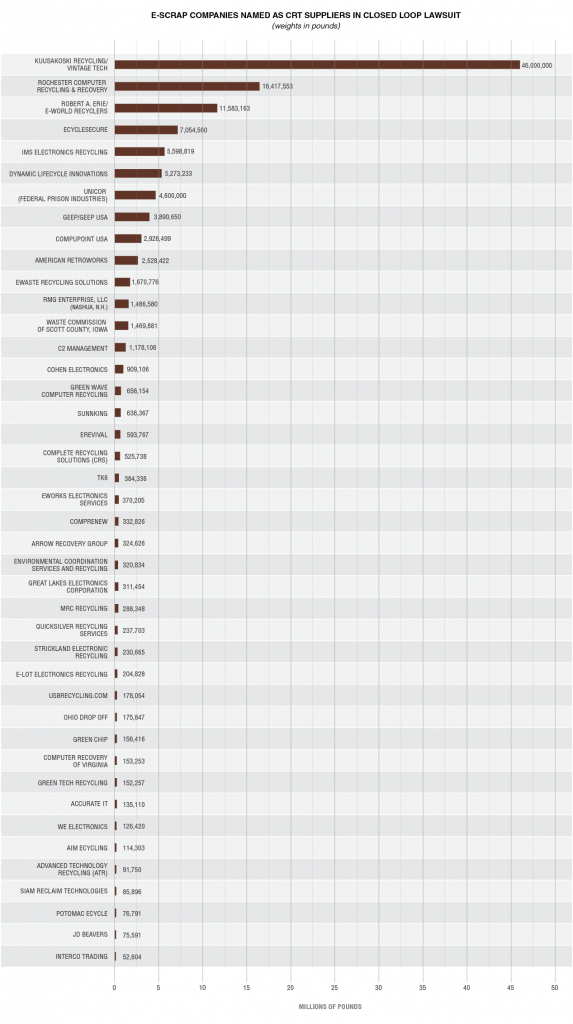
Glass has always been a challenge in the world of electronic recycling. Because CRT glass contains lead and is expensive and difficult to clean and process, many processors over the year have taken the easy – and some would say unethical – way out and not processed it at all.
ERI has always taken the high road. Investing in innovative technology that utilizes a proprietary cleaning system to solve glass processing problems in house, ERI has always been able to clean and process glass on site in a safe and environmentally responsible way.
Unfortunately, many recyclers were not willing to take the steps that ERI took to be environmentally responsible and to protect all of its partners and customers from future scrutiny.
A series of recent articles published E-Scrap News paints a bleak picture of bad actors attempting shortcuts with glass processing for many years. Those short cuts may have saved the processors money then, but are being paid for now with massive fines and even jail time for those who had been stockpiling instead of processing CRT glass.
In recent court filings, warehouse owners named over 40 e-scrap companies they say contributed to what became the largest CRT glass stockpile in U.S. history. These companies shipped CRT glass to Closed Loop Refining and Recovery’s Ohio facilities where it was simply thrown onto the pile of what became an estimated 316 million pounds of CRT materials on multiple properties in Arizona and Ohio.
Among the 41 companies and one solid waste district named are some of the e-scrap industry’s most prominent businesses.
Now, in an amended complaint filed March 28, additional suppliers are being named for shipping glass to the Ohio sites.
Read the E-Scrap News stories at the bottom of this article to see the long list of organizations being scrutinized today for actions taken previously. In some cases, these companies may has innocently believed that Closed Loop would be processing the glass in some way. Others were not so innocent.
Regardless of a company’s role in the lifecycle of electronics, there is only one legitimate way to prevent this kind of thing from happening in the future and that is due diligence. Partner with an organization that is R2 certified and a Basel Action Network e-steward. Plus, choose a recycling and processing partner that is AAA certified with NAID for responsible data destruction as well. ERI was the first organization in the world to be certified by all of these watchdog organizations, meeting and exceeding all sustainability and data destruction standards.
Now, as countless companies find themselves being sued, fined or worse, ERI’s partners and customers can breathe easily, knowing that they chose to work with an organization that not only took the time and investment capitol to do the right thing with CRT glass, it also is regularly setting innovative sustainability standards across the board.
Learn more about the current fallout from the glass controversy in the following two articles from E-Scrap News:
Lawsuits take aim at dozens of Closed Loop CRT suppliers
Judge: Counties responsible for some stockpile cleanup costs
